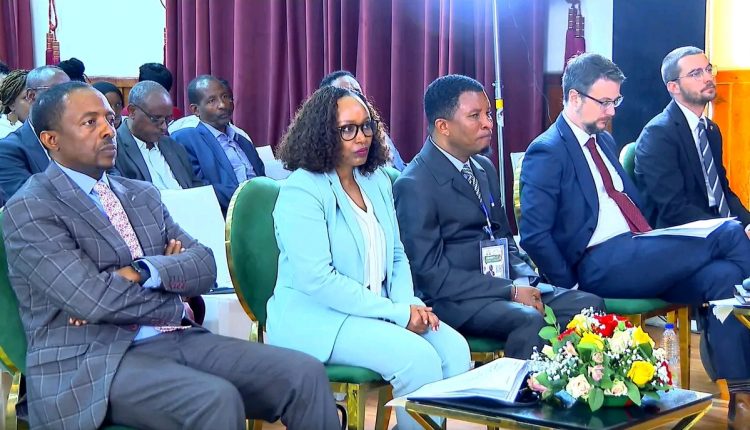Global Youth Convene in Addis Ababa for Nairobi Climate School Ahead of Africa Climate Summit
Addis Ababa, August 25, 2025 (FMC) – Young climate leaders from over 60 countries have gathered in Ethiopia’s capital for the fifth Nairobi Summer School on Climate Justice (NSSCJ), launched today at Addis Ababa University by the Pan-African Climate Justice Alliance (PACJA).
The annual program, held this year as a strategic precursor to the Second Africa Climate Summit (ACS2) scheduled from September 8–10, 2025, equips participants with knowledge, skills, and networks to engage in high-level policy discussions, amplifying youth perspectives in continental climate action.
While independent of the official ACS2 agenda, the school is deliberately timed to allow civil society and youth representatives to consolidate positions and influence negotiations ahead of the summit.
The program fosters intergenerational dialogue, featuring young climate activists alongside prominent voices from academia, government, and international organizations.
In her keynote address, Ethiopia’s Minister of Planning and Development Fitsum Assefa emphasized the moral urgency of climate justice. “The call for climate justice is not political; it is moral, urgent, and non-negotiable,” she said, highlighting Africa’s dual role as both a frontline victim of climate change and an emerging leader in global climate action.
She underscored the continent’s contribution and burden: “Africa is warming faster than the global average, with climate extremes costing our economies between 2 and 5 percent of GDP every year. Communities from drought-prone lowlands to flood-affected river basins bear the brunt of a crisis they did not create, yet our emissions remain below 4 percent of the global total.”
Minister Fitsum also showcased Ethiopia’s pioneering climate initiatives. The nation introduced its Climate-Resilient Green Economy (CRGE) Strategy in 2011, predating the Paris Agreement, mainstreaming climate action across policies and programs. Through the Green Legacy Initiative, launched in 2019 under Prime Minister Abiy Ahmed, Ethiopia has planted more than 48 billion seedlings, aiming for 50 billion by 2026. The program has restored degraded land, reduced soil erosion, improved food security, created green jobs, and rehabilitated over 15 million hectares through watershed management and area enclosures.
PACJA Executive Director Mithika Mwenda highlighted the strategic importance of hosting NSSCJ in Addis Ababa ahead of the ACS2. “The Nairobi Summer School is not just about education; it’s about building a movement. By bringing our young leaders here, we ensure they are at the table, ready to shape the future of climate justice and influence continental decision-making,” he said.
He added, “Africa is brimming with innovations, especially from its youth, yet these solutions have often been overlooked.”
The two-week program, running from August 25 to September 4, 2025, immerses participants in a transdisciplinary curriculum covering climate finance, policy, grassroots mobilization, and other critical areas. NSSCJ’s presence in Addis Ababa reflects a commitment to a just and sustainable future, ensuring youth voices resonate as African leaders convene for ACS2.

